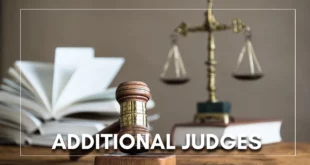- The freedom of speech is one of the most cherished freedoms. The Constitution of India, too, declares that Indians possess this freedom, but makes it subject to the interest of public order, or the sovereignty and integrity of India.
- We believe that the framers of the Constitution accepted this watering down of this fundamental freedom, simply because the notion of unfettered freedom of speech was foreign to us.
- The concept of freedom of speech is a western notion. While some form of freedom may have existed in ancient Greece, the real freedom of speech, as we understand it today, was propounded by Voltaire and Rousseau.
- There is nothing in our soil that suggests that this freedom took root here. B.R. Ambedkar, in his Writings and Speeches, notes this in relation to ancient India:
- “‘As to freedom of speech it exists. But it exists only for those who are in favour of the social order. The freedom is not the freedom of liberalism which was expressed by Voltaire when he said ‘I wholly disapprove of what you say and will defend to the death your right to say it.”’
- There is some evidence that the freedom of expression existed within state-ordained constructs. The content of the debates of Adi Shankara or Saint Thirugnana Sambandar seem remarkably liberal.
- Yet, this freedom did not extend to criticism of the king or his royal policies. A man who spoke ill of a king did not live long enough to see the effect. Hence, free speech was within state-defined boundaries.
- On the other hand, the freedom of speech and thought that sparked the minds of western thinkers was the freedom from such limits.
- Bertrand Russell’s masterpiece on western philosophy traces the history of free thought, to its culmination, where a man’s right to think freely supersedes his duty of obedience to the state.
- The right to not just think freely but also to criticise the state is very fundamental to western notions of democracy.
- This then is the full freedom of thought and expression that has emerged from the West.
- The British Raj obviously did not tolerate free speech, and our thoughts remained manacled until 1947. In 1947, our nation was born, and suddenly, in 1950, we were free to express ourselves.
Progress that has been faltering
- The first 50 years of freedom were spent in framing the contours of this freedom. The gestalt of what this freedom exactly was came to be created through a series of judicial decisions which recognised this freedom in a restricted form, defining more by exception than by rule.
- This faltering progress is consistent with the infancy of a nation, trying to define its relationship with its citizenry.
- The 1990s and 2000s brought with it unprecedented economic progress, and brought us to the last decade — and also the transition from infancy to adolescence. This adolescence has not brought with it free thought, but rather, a strong opposition to it — by other Indians, who disagree.
- The muzzling of unpopular opinions is now done through mob power, actions for defamation, social media blackouts and vetoes and the like.
- Calls for bans and boycotts of films and books are done for the silliest of reasons. Persons perceive insults and commence protests and lawsuits.
- Banners in film theatres are burnt, art studios are vandalised and the staging of plays are stopped, not because the art is bad, but because they disagree with what is expressed.
- Thus, we see for the first time that the freedom of speech is under threat not only vertically (that is to say, from the state) but also horizontally (that is to say, from other citizens).
- Free speech is unpopular when it unsettles the existing order. People feel uneasy when someone stands up and says we have been doing things wrong and that things must change.
- Therefore, people maintain the status quo by suppressing unpopular speech. This enables the state to step in and define the framework within which speech is free. And when this happens, we have only the illusion of free speech, and real freedom is lost.
The mob, its dangers
- Indians seek to shut down the opinions and expressions of others when they feel threatened by it.
- This sense of insecurity along with aggression is the hallmark of adolescence and runs as a common thread through all the oppressive actions we have noticed above. We seek strength in numbers.
- The mob provides us the comfort and the anonymity to suppress opinions and views that we disagree with. Once all dissenting thought is suppressed, we will find only views that echo our own.
- This trend, if not arrested, can lead to a nation’s inhabitants surrendering their independence to a domineering public opinion.
- This, in turn, yields to persons depending on a doting, parent-like guardian state for all “freedom”. Most recently, the Supreme Court of India in its judgment in Kaushal Kishore’s case (rendered on January 3, 2023) declared that the fundamental rights of Indians are exercisable not only vertically but also horizontally.
- The question before the Court in this case was whether the fundamental rights (including the freedom of speech) can be claimed other than against the state or its instrumentalities.
- The Court concluded that such fundamental rights can be enforced even against persons other than the state and its instrumentalities.
- This judgment holds the key as to how India can emerge from its adolescence. If every citizen enforces their fundamental freedoms not only against the state but against each other, to the fullest extent, we will then seize back the power to define our own freedoms.
- Our failure to do so will result in us becoming an obedient and bovine citizenry which implicitly obeys the false credo that nothing can be done unless expressly permitted.
SOURCE: THE HINDU, THE ECONOMIC TIMES, PIB
 Chinmaya IAS Academy – Current Affairs Chinmaya IAS Academy – Current Affairs
Chinmaya IAS Academy – Current Affairs Chinmaya IAS Academy – Current Affairs



